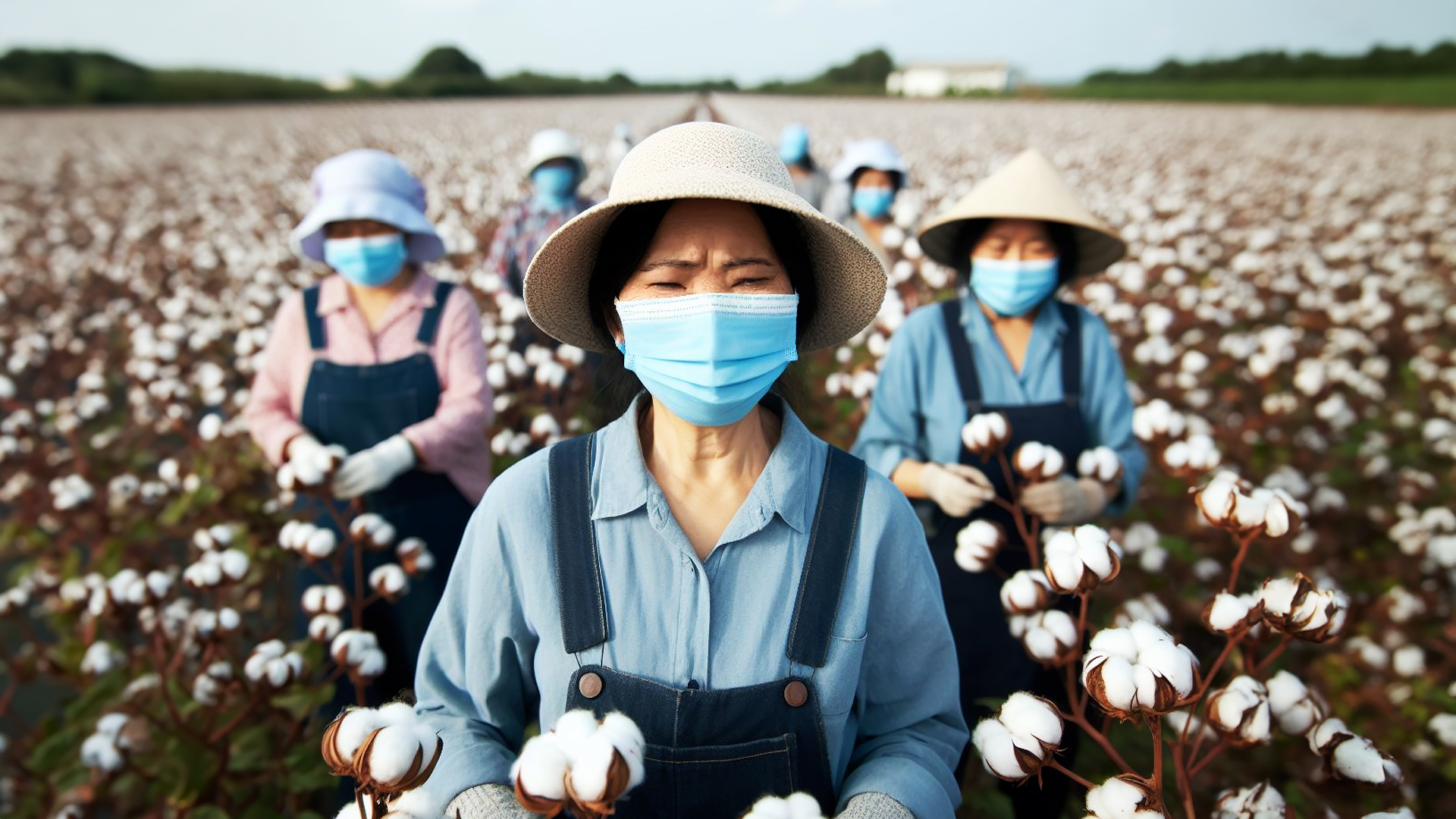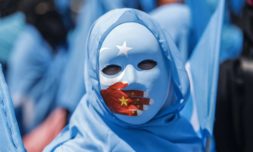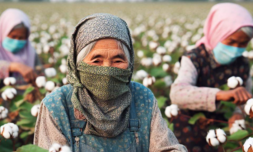In 2020, a coalition of human rights groups said it was ‘virtually certain’ that as many as 1 in 5 cotton products sold across the globe were tainted with modern slavery. Has the apparel industry stopped sourcing so extensively from Xinjiang and are brands’ supply chains as ethical as they say they are?
During the pandemic, many of the world’s biggest fashion brands and retailers were found to be complicit in the human rights violations of millions of Uyghur people in the Xinjiang region of north-western China.
The investigation was conducted by a coalition of over 180 human rights groups, trade unions, and civil society organisations.
It revealed that major clothing companies across the globe had continued to source cotton and yarn produced through a vast state-sponsored system of detention and forced labour involving up to up to 1.8m Uyghur and other Turkic and Muslim people in prison camps, farms, and factories.
This was despite international outrage at the time over the atrocities being committed against the population – which remains the largest internment of an ethnic and religious minority since the second world war.
‘Virtually the entire apparel industry is tainted by forced Uyghur and Turkic Muslim labour,’ the coalition said in a statement almost four years ago.
In a call to action, it urged the apparel industry to stop sourcing so extensively from Xinjiang and for brands to immediately review their supply chains.
‘Brands must ask themselves how comfortable they are contributing to a genocidal policy against the Uyghur people. These companies have somehow managed to avoid scrutiny for complicity in that very policy – this stops today.’
The issue wouldn’t be addressed at scale for another two years however, which is how long it took for policymakers to implement the Uyghur Forced Labour Prevention Act (UFLPA) that came into effect in June of 2022.
Widely heralded as one of the most hard-hitting laws devised to tackle imports connected to Uyghur forced labour, the US Customs Border Protection has detained almost $2bn worth of goods in the time since.
Specifically, of the 982 fashion shipments totalling almost $43 million, 556 were denied entry into the US for failing to offer documents proving that they had no ties with modern slavery.
Nevertheless, today’s reality paints a different picture, with researchers believing that instances of forced labour in Xingjiang are on the rise and that the textile sector is primarily to blame for this.




















